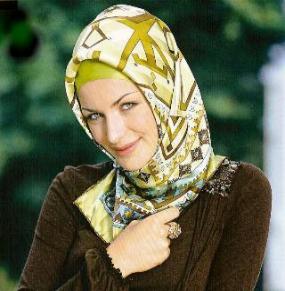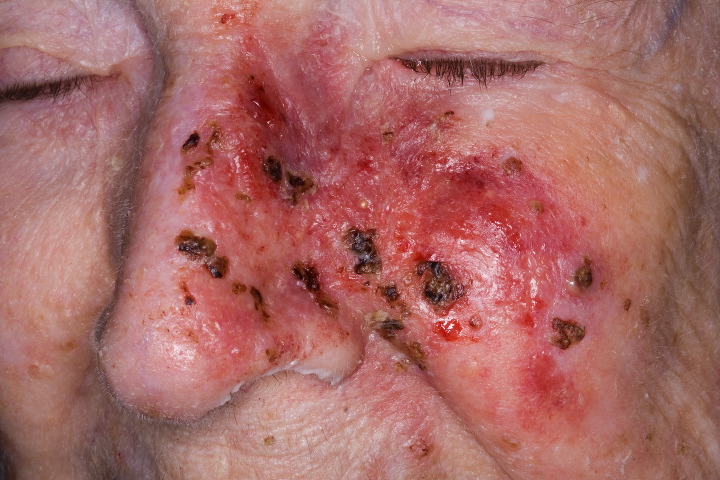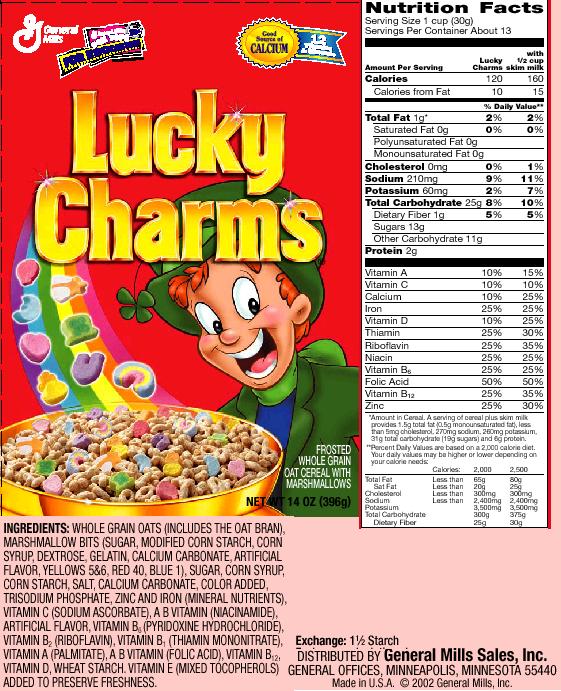Holy Qur’an Surah 2:219-
يَسْأَلُونَكَ عَنِ الْخَمْرِ وَالْمَيْسِرِ ۖ قُلْ فِيهِمَا إِثْمٌ كَبِيرٌ وَمَنَافِعُ لِلنَّاسِ وَإِثْمُهُمَا أَكْبَرُ مِنْ نَفْعِهِمَا ۗ وَيَسْأَلُونَكَ مَاذَا يُنْفِقُونَ قُلِ الْعَفْوَ ۗ كَذَٰلِكَ يُبَيِّنُ اللَّهُ لَكُمُ الْآيَاتِ لَعَلَّكُمْ تَتَفَكَّرُونَ {219}
Transliteration: Yas'alūnaka `Ani Al-Khamri Wa Al-Maysiri Qul Fīhimā 'Ithmun Kabīrun Wa Manāfi`u Lilnnāsi Wa 'Ithmuhumā 'Akbaru Min Naf`ihimā Wa Yas'alūnaka Mādhā Yunfiqūna Quli Al-`Afwa Kadhālika Yubayyinu Allāhu Lakumu Al-'Āyāti La`allakum Tatafakkarūna
Holy Qur’an Surah 2:219- They ask you about wine and gambling. Say, "In them is great sin and [yet, some] benefit for people. But their sin is greater than their benefit." And they ask you what they should spend. Say, "The excess [beyond needs]." Thus Allah makes clear to you the verses [of revelation] that you might give thought. (Saheeh International translation)
This article will be dealing with the issue of alcohol and all its harm. I decided to write this article because I have seen a few of the critics of Islam try to attack Islam’s banning of the demonic force of alcoholic beverages. In this article I will present just some of the evidence of the horrifying impact of alcohol on the world and also give a thorough refutation of the fraudulent claims advanced by some that alcohol if only used a little (which the epidemic of alcohol deaths, injuries, and debauchery shows is next to impossible) is allegedly somehow “healthy”. In refuting this myth of “healthy” alcohol I will quote Western non-Muslim medical professionals and academics who torpedo this myth of alleged “health benefits” from moderate alcohol use.
To start I want to say one quick thing on Holy Qur’an Surah 2:219. As I said this article will cite professional medical sources that torpedo the myth of moderate alcohol use having any alleged “health benefits”; so I just wanted to caution my Muslim brothers and sisters against interpreting this verse of the Qur’an (Surah 2:219) as allegedly agreeing that alcohol has any alleged “health benefits” in moderate use (I will again cite the relevant medical evidence that disproves this false propaganda of the alcohol lovers). It is much more likely that Qur’an 2:219 and any other Islamic literature that mentions any of the so-called “benefits” of alcohol is simply talking about people having “fun” by drinking alcohol and becoming intoxicated. From my very own limited experience, before I converted to Islam, of being at parties and events where people are imbibing alcohol (often extremely harmful large amounts of the neurotoxin of alcohol) people often seem to be and state they are having a great time. This is often followed by much vomiting and great sickness the next day! This simple fact that people quite often “cut lose” and have “fun” when abusing alcohol may be the simple understanding of a Qur’an verse like Qur’an 2:219. Again this verse states “In them is great sin and [yet, some] benefit for people. But their sin is greater than their benefit.” (Qur’an 2:219, Saheeh International translation). Obviously the sin, evil, and horrific health damage done by alcohol far outweighs a “benefit” of having a crazy, “fun” night on the town. A good article on the issue of “fun” and Islam: http://islam-qa.com/en/ref/113836/Muslim%20fun
Quote- …
If you want to understand the truth of these words, then read the stories of those among your own people, or others, who entered Islam. Look at the great changes that occurred in their lives, and look at the great happiness that they enjoy now. This is the enjoyment that you should seek. Just as you call on us to have fun and enjoyment, we call you sincerely to come and find enjoyment with us, and follow the path of happiness, and taste true happiness that will be with you as you go to sleep and as you wake up, and will never leave you, until you enter your grave, until your Lord admits you to the abode of happiness, which is Paradise as vast as the heavens and the earth.
end quote.
Another good link on alcohol from this good Sunni Muslim website: http://islam-qa.com/en/ref/40882/alcohol
Now let me briefly give just some of the masses of information on just how devastating and deadly alcohol is.
Quote- Alcohol Responsible for More Deaths Than AIDS, TB or Violence
By Deborah Huso Feb 11th 2011 1:41PM
It is no secret that alcohol abuse and deaths related to alcohol are a serious problem, but it may be worse than many realize. In fact, alcohol is responsible for 2.5 million deaths around the globe each year.
Figures released this week in the World Health Organization's "Global Status Report on Alcohol and Health" showed that alcohol-related incidents and diseases account for nearly 4 percent of deaths worldwide.
Figures released this week in the World Health Organization's "Global Status Report on Alcohol and Health" showed that alcohol-related incidents and diseases account for nearly 4 percent of deaths worldwide.
end quote.
And just to be succinct (leaving aside all the masses of information I could post here of all the massive dangers of alcohol from drink driving, to cancers, etc.) let me just cite one more link: http://wiki.answers.com/Q/How_many_alcohol_related_deaths_occur_each_year
How can alcohol be blamed for 100,000 deaths each year?
- 5% of all deaths from diseases of the circulatory system are attributed to alcohol.
- 15% of all deaths from diseases of the respiratory system are attributed to alcohol.
- 30% of all deaths from accidents caused by fire and flames are attributed to alcohol.
- 30% of all accidental drownings are attributed to alcohol.
- 30% of all suicides are attributed to alcohol.
- 40% of all deaths due to accidental falls are attributed to alcohol.
- 45% of all deaths in automobile accidents are attributed to alcohol.
- 60% of all homicides are attributed to alcohol.
(Sources: NIDA Report, the Scientific American and Addiction Research Foundation of Ontario.) Also see Alcohol Consumption and Mortality, Alcohol poisoning deaths, CDC report,
100,000 deaths. That's more than a statistic. That is 100,000 individuals with faces. 100,000 individuals with lives not fully lived. 100,000 individuals grieved by mothers, fathers, brothers, sisters, and children. Every year.
Go to the FAS Resource Center Main Page
end quote.
After this background information, let me now move to what I believe is the central point of this article demolishing the myths of certain kaafir disbelievers of the alleged “health benefits” of “moderate” alcohol intake. The first article I will cite: http://www.guardian.co.uk/uk/2001/dec/20/research.medicalscience
Quote- Healthy wine myth debunked
The notion that a regular little tipple is good for your health, especially from middle age, is debunked by researchers today.
Taking up alcohol may help older men cut the risks of heart attack, but increases the threat of premature death from other diseases such as cancer, according to a study which monitored the progress of 7,735 men over 16 years. The work questions the popular wisdom that moderate drinking, particularly of red wine, can help people's overall health. It is a suggestion that campaigners fear interferes with the message about the risks of alcohol.
Gerry Shaper, one of the researchers, said: "There ought to be a debunking of the 'benefits' of alcohol.
"One should be very careful, particularly doctors, of advising people to start drinking because it is good for them. That often happens when men retire. I think it is pernicious."
Dr Shaper, of the Royal Free and University College Medical School, London, questioned whether even the reduced risk of heart disease was down to alcohol. Men who moved from not drinking, or taking the occasional drink, to more regular drinking in middle age tended to have had better lifestyles when younger.
The research is reported in the medical journal Heart. It involved men screened for heart disease by GPs in 24 towns from 1978 to 1980 when they were between 40 and 59. Most were questioned again on their drinking and lifestyles five years later, and their progress was monitored into the 90s.
Most of those who were deemed "new regular drinkers" consumed between one and 15 units a week, considered light drinking. They were less likely to have a heart attack than those who remained teetotal or still only drank occasionally.
However, they were no less likely to die of heart or cardiovascular disease - and 40% more likely to die of other diseases.
The charity Alcohol Concern said: "The health costs of alcohol far outweigh the benefits, with around 33,000 people dying of alcohol related diseases in the UK every year."
The British Heart Foundation said: "This research is of importance because it shows that the effects of alcohol on one organ may not apply to the rest of the body."
Meanwhile, scientists at Queen Mary College, London, believe they have worked out why red wine might help to stave off heart disease.
They found that in laboratory tests, alcohol-free extracts of red wine blocked production of a natural chemical called endetholin-1. This chemical is an important factor in cardiovascular disease because it causes blood vessels to constrict. Rosé and white wines had no effect on mammal blood vessel cells, but the blocking effect of an extract of cabernet sauvignon was seven times more powerful that of than grape juice.
However, Professor Roger Corder, who led the research, said: "The changes that alcohol causes are so modest that you would not in your right mind believe that they could protect you from heart disease.
"What one would want to encourage is a lifestyle that says a couple of glasses of red wine with your evening meal or your lunch is what is required, and alcohol consumption other than that should be avoided."
end quote.
As for the alleged “health benefits” of moderate alcohol intake, a famous British doctor mentioned in the article I cited above, named Dr. Gerry Shaper, completely destroys the very base of the claim that “moderate” alcohol intake has any benefit. What I’m about to state is HUGELY important, as Dr. Gerry Shaper noticed a massive error in the studies that claimed that moderate alcohol intake had any alleged “health benefit”. This error in the studies was what Dr. Gerry Shaper called the “abstainer myth”. See most of these old studies had just two categories in their “experiment” labeled drinkers and abstainers (i.e. non-drinkers). What these fraudulent “experiments” hid was the fact that many of the people they put in the “abstainer” (or non-drinker) category had actually been past alcohol drinkers! In many cases these alleged alcohol “abstainers” had only very recently given up alcohol use; in many cases because they were in ill health and doctors had advised them to stop drinking alcohol (indicating that many of them were likely heavy alcohol drinkers before)! Yet absurdly these people were put in the “abstainer” category; and no mention was made of the fact that they had been alcohol drinkers earlier on and were told to stop drinking alcohol by medical professionals: again most of these people were thus already in bad health (probably from heavy past alcohol use). This terribly skewed the fraudulent results of these studies and made the overall abstainer category appear less healthy then they really were.
A wonderful article explaining this is the following: http://articles.sfgate.com/2006-03-30/news/17287339_1_drinkers-moderate-alcohol-consumption-abstainers
Quote- UCSF points out flaw in studies tying alcohol to heart health
March 30, 2006|By Sabin Russell, Chronicle Medical Writer
Well, maybe not.
Researchers at UCSF pored through more than 30 years of studies that seem to show health benefits from moderate alcohol consumption, and concluded in a report released today that nearly all contained a fundamental error that skewed the results.
That error may have led to an erroneous conclusion that moderate drinkers were healthier than lifelong abstainers. Typically, studies suggest that abstainers run a 25 percent higher risk of coronary heart disease.
Without the error, the analyses shows, the health outcomes for moderate drinkers and non-drinkers were about the same.
"This reopens the debate about the validity of the findings of a protective effect for moderate drinkers, and it suggests that studies in the future be better designed to take this potential error into account," said Kaye Fillmore, a sociologist at the UCSF School of Nursing and lead author of the study.The common error was to lump into the group of "abstainers" people who were once drinkers but had quit.
Many former drinkers are people who stopped consuming alcohol because of advancing age or poor health. Including them in the "abstainer" group made the entire category of non-drinkers seem less healthy in comparison.
This type of error in alcohol studies was first spotted by British researcher Dr. Gerry Shaper in 1988, but the new analysis appears to show that the problem has persisted.
Fillmore and colleagues from the University of Victoria, British Columbia; and Curtin University, in Perth, Australia, analyzed 54 different studies examining the relationship between light to moderate drinking and health. Of these, only seven did not inappropriately mingle former drinkers and abstainers.
All seven of those studies found no significant differences in the health of those who drank -- or previously drank -- and those who never touched the stuff. The remaining 47 studies represent the body of research that has led to a general scientific consensus that moderate drinking has a health benefit.
Fillmore's team of researchers took their initial finding one step further, and introduced the error into the data compiled in the seven studies and, voila, the results changed to show drinkers had better health than abstainers.
end quote.
http://articles.sfgate.com/2006-03-30/news/17287339_1_drinkers-moderate-alcohol-consumption-abstainers/2
Quote- (Page 2 of 2)
"We are not proving anything," Fillmore insisted. "But the results are certainly suggestive."The UCSF study appears today in an online edition of the journal Addiction Research and Theory.
Kaiser Permanente cardiologist Dr. Arthur Klatsky, who led some of the largest studies showing a protective effect for moderate alcohol consumption, said his first study in 1981 contained the flaw, but subsequent studies took it into consideration.
"Without question, it is a serious flaw, which we have readily admitted," he said. He contends, however, that Fillmore's analysis mistakenly attributes the same mistake to later research.
"The evidence is still pretty compelling that there are likely to be benefits" from moderate drinking, he said. In addition, he said, studies show that alcohol raises the level of HDL -- the so-called good cholesterol -- and also has anti-clotting effects, which can reduce the risk of heart attack.
Klatsky said that there are inherent weaknesses in all the epidemiological studies of alcohol and heart health. What is needed, he said, is a randomized trial in which a group is assigned to consume one or two drinks a day and another abstains, and their comparative health is assessed over a period of years.
Dr. Tim Naimi, a physician who works for the National Center for Chronic Disease at the Centers for Disease Control and Prevention in Atlanta, said "the whole field of 'moderate drinking' studies is deeply flawed," because of the lack of randomized trials.
In a study published in May 2005 in the American Journal of Preventive Medicine, Naimi and other CDC colleagues found that the comparatively higher risk of heart disease in abstainers could be explained by socioeconomic factors rather than lack of protection from alcohol consumption.
Non-drinkers, for example, tended to be poorer than drinkers, had less access to health care, and had less healthy diets.
"Anyone who suggests that people should begin drinking, or drink more frequently, to reduce the risk of heart disease is misguided," he said.
end quote.
This information absolutely obliterates the whole claim of the silly infidel alcohol lovers (again most of my refutation of them is coming from Western non-Muslim medical professionals and researchers). Again almost all of these deceptive studies (mostly from the 1980s) that claimed “moderate” alcohol drinking allegedly made one’s heart “healthier” are all worthless as they all contained the “abstainer error” (first pointed out by the respected British medical professional Dr. Gerry Shaper). This “abstainer error” again frivolously and wrongly included people who had recently given up drinking alcohol on doctor’s orders because they were already in terrible health (likely from having been heavy alcohol drinkers in the past). Including these heavy alcohol drinkers, who had been made to stop by medical professionals, in the “abstainer” category (because they had recently given up their past alcohol use) was the trick these pathetic alcohol lovers used to produce the deceptive and false claim that moderate alcohol drinking allegedly is “good” for one’s health. Again Dr. Gerry Shaper torpedoed this silly claim of the alcohol lovers! Also Dr. Tim Naimi and his CDC (US government Centers for Disease Control) colleagues also gave another huge explanation that refuted the alcoholic propagandists. Dr. Naimi and company showed how these deceptive people didn’t include socioeconomic issues in some of their deceptive studies. Again: http://articles.sfgate.com/2006-03-30/news/17287339_1_drinkers-moderate-alcohol-consumption-abstainers/2
Quote- Dr. Tim Naimi, a physician who works for the National Center for Chronic Disease at the Centers for Disease Control and Prevention in Atlanta, said "the whole field of 'moderate drinking' studies is deeply flawed," because of the lack of randomized trials.
In a study published in May 2005 in the American Journal of Preventive Medicine, Naimi and other CDC colleagues found that the comparatively higher risk of heart disease in abstainers could be explained by socioeconomic factors rather than lack of protection from alcohol consumption.
Non-drinkers, for example, tended to be poorer than drinkers, had less access to health care, and had less healthy diets.
"Anyone who suggests that people should begin drinking, or drink more frequently, to reduce the risk of heart disease is misguided," he said.
end quote.
Another good article from the website of the University of California, San Francisco itself (where UCSF School of Nursing Adjunct Professor Kaye Fillmore, PhD and her colleagues are from) continues in destroying the myths of the alcohol lovers.
From: http://www.ucsf.edu/news/2007/03/7215/debate-rekindled-two-drinks-day-road-heart-health
Quote- Debate Rekindled on the Two-Drinks-a-Day Road to Heart Health
By Kristen BoleNo one really wants to hear that alcohol isn't good for us after all, which could be why scientists worldwide have convened on paper this month to debate a UCSF researcher's study that debunks the popular notion.
UCSF School of Nursing Adjunct Professor Kaye Fillmore, PhD, led an international team on a meta-analytic study that found a common error in most significant studies connecting moderate alcohol consumption to healthy hearts. The study was published last year in Addiction Research and Theory, a bimonthly medical journal in England.
Now, eight independent scientists have filed their responses to the Fillmore study in the March 29 issue of Addiction Research and Theory, with further response from Fillmore, creating what journal editor Derek Heim said "may well constitute the most complete critical discussion of the protective effect [of alcohol] to date."
Three of those researchers donned their boxing gloves, taking issue with Fillmore's inclusions, exclusions or conclusions in the research, including which studies were considered flawed or were chosen for the analysis. Yet the majority agreed that most previous studies had included the same error.
The error, according to the 2006 study, was in counting among "abstainers" the people who had given up alcohol for health reasons. That inclusion skewed the health profile of the abstainer group, Fillmore said, making moderate alcohol drinkers look healthier.
The story generated huge interest, not only among media mavens, but also in the halls of the alcohol industry, which has supported past research substantiating the heart-health link.
"It's probably the most ferocious debate in medical epidemiology right now, because we really hit the alcohol industry below the belt," said Fillmore, who admitted she personally enjoys a drink, but said she does it for pleasure, not for her heart. "This was a tremendous threat to the industry."
Other researchers on Fillmore's team included William Kerr, PhD, Alcohol Research Group, USA; Tim Stockwell, PhD, University of Victoria, Canada; Tanya Chikritzhs, PhD, Curtin University, Australia; and Alan Bostrom, PhD, University of California, San Francisco.
One of the authors currently contesting the Fillmore study, Arthur Klatsky, MD, from the Division of Research at the Kaiser Permanente Medical Care Program, cited his own eight-year study of 128,934 Kaiser patients. The study, which Klatsky had led, was included by the Fillmore study in the group that contained flaws.
While Klatsky contested inclusion in the flawed group, citing precise questions in his study that had separated ex-drinkers from lifelong abstainers, his conclusion actually bolstered Fillmore's case. His study, Klatsky wrote, found that ex-drinkers do have increased risk and should be separated from lifelong abstainers. Infrequent drinkers (those who have less than one drink per month), he said, were shown to have the same risk as abstainers.
Fillmore, whose team also published a response to the responses in the current journal, said her original paper drew international recognition precisely because so many physicians have started prescribing alcohol to prevent heart disease. That's especially true in developing countries, where medications aren't readily available to most people, but where alcohol - commercial or homemade - is both ubiquitous and cheap.
"The bottom line is, nobody knows what alcohol's effect is on our hearts, because these studies are so difficult to construct to eliminate error," Fillmore said. "We do know that it is associated with a huge number of other killers, from cirrhosis to cancer to car accidents."
Her hope is that governments and physicians alike will at least think twice about prescribing the two- or three-drinks-a-day "medicine," especially for those on medications that might interact with alcohol.
"That's just dangerous. And for older people, whose tolerance to alcohol has decreased, you're going to have a lot of broken hips from falls, or car accidents," she said. "Why risk that, when it would be just as easy to tell them to take an aspirin a day?"
Related Links:
International Study Questions Health Benefits of Moderate Drinking
UCSF News Release, March 30, 2006
UCSF Study Disputes Recent Reports that Alcohol-abstainers Are at Greater Risk of Mortality
UCSF News Release, January 31, 1998
end quote.
This was such a thorough refutation let me just cite a few of the amazing quotes from this above article again! Quote- The story generated huge interest, not only among media mavens, but also in the halls of the alcohol industry, which has supported past research substantiating the heart-health link.
"It's probably the most ferocious debate in medical epidemiology right now, because we really hit the alcohol industry below the belt," said Fillmore, who admitted she personally enjoys a drink, but said she does it for pleasure, not for her heart. "This was a tremendous threat to the industry."
…
While Klatsky contested inclusion in the flawed group, citing precise questions in his study that had separated ex-drinkers from lifelong abstainers, his conclusion actually bolstered Fillmore's case. His study, Klatsky wrote, found that ex-drinkers do have increased risk and should be separated from lifelong abstainers. Infrequent drinkers (those who have less than one drink per month), he said, were shown to have the same risk as abstainers.
…
"The bottom line is, nobody knows what alcohol's effect is on our hearts, because these studies are so difficult to construct to eliminate error," Fillmore said. "We do know that it is associated with a huge number of other killers, from cirrhosis to cancer to car accidents."
Her hope is that governments and physicians alike will at least think twice about prescribing the two- or three-drinks-a-day "medicine," especially for those on medications that might interact with alcohol.
"That's just dangerous. And for older people, whose tolerance to alcohol has decreased, you're going to have a lot of broken hips from falls, or car accidents," she said. "Why risk that, when it would be just as easy to tell them to take an aspirin a day?"
end quote.
I have presented on the evidence refuting the claims of the alcohol promoters and their baseless claim of the alleged “health benefits” of moderate alcohol use! Alcohol may give the disbelievers some feelings of fun and wild careless sex with strangers, but these are short-lived pleasures and the demonic effects of alcohol follow soon after (which Allah tells us in his Qur’an in verses again like Qur’an Surah 2:219).
To leave you with a few more interesting links:



















